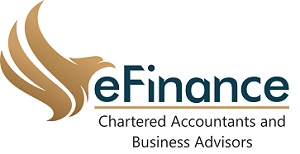Open book accounting is a concept that has been gaining traction in the financial world. It’s a way of managing finances that focuses on transparency and collaboration between different parties, allowing them to share information with one another. In this article, we’ll answer the question – what is open book accounting – and explore how it can benefit you. We’ll also take a look at some of the challenges that come with implementing an open book accounting system.
Introduction
Open book accounting is a term that is used to describe a system of accounting where all financial information is made available to all interested parties. This includes information such as the company’s income statement, balance sheet, and cash flow statement.
One benefit of open book accounting is that it can help reduce the cost of financial reporting. In traditional accounting systems, companies often incur significant costs in order to produce financial statements for shareholders and other interested parties. By making this information available online, companies can save money on printing and distribution costs.
Another advantage of open book accounting is that it can improve decision-making by giving all stakeholders access to the same information. This level of transparency can help identify problems early on and allow for quick corrective action.
There are some disadvantages to open book accounting as well. One challenge is ensuring that all stakeholders have the necessary skills to interpret and use the financial information correctly. Another concern is that open book accounting may give rise to conflicts of interest if different stakeholders have different agendas. Finally, open book accounting may create a competitive disadvantage for companies if their competitors do not have similar levels of transparency.
What is Open Book Accounting?
Open book accounting is a system where businesses share their financial information with employees. The goal of open book accounting is to improve communication and understanding between managers and employees about the company’s financial situation.
There are a few key things to keep in mind when implementing open book accounting:
- Make sure all employees have access to the same financial information.
- Train employees on how to interpret and use the financial information.
- Encourage employee input on how the company can improve its financial performance.
- Be prepared to answer questions from employees about the company’s finances.
- Keep communication lines open between management and employees about financial goals and progress.
Benefits of Open Book Accounting
Open book accounting is a term that is used to describe a system of accounting where all financial information is made available to everyone in the organisation.
There are many benefits of open book accounting, including:
1. Increased transparency and accountability:
Open book accounting promotes transparency and accountability within the organisation by making all financial information available to everyone. This allows for greater scrutiny of the organisation’s finances, which can help to prevent fraud and mismanagement.
2. improved decision-making:
Open book accounting can help improve decision-making within the organisation by giving all employees access to the same financial information. This level of openness can help to ensure that decisions are made based on accurate and up-to-date information.
3. enhanced communication:
Open book accounting can enhance communication between employees and management by promoting a shared understanding of the organisation’s financial situation. This can lead to improved cooperation and teamwork as everyone works towards the same goal.
4. increased employee engagement:
Open book accounting can increase employee engagement by giving them a greater sense of ownership in the organisation. When employees have access to the organisation’s financial information, they are more likely to be invested in its success or failure.
5.Improved organisational performance:
Open book accounting has been shown to improve organisational performance, as it can help align employee goals with those of the organisation. When everyone is working towards the same
Disadvantages and Challenges of Open Book Accounting
There are a few disadvantages and challenges associated with open book accounting. First, it can be difficult to maintain the transparency and communication required for this type of accounting. Second, there is the potential for abuse, as employees may feel pressure to inflate numbers or massage data in order to please management. Finally, open book accounting requires a high degree of trust between management and employees, which can be difficult to establish and maintain.
How to Implement an Open Book Accounting System
Open book accounting is a system where businesses share their financial information with employees. The goal of open book accounting is to give employees a better understanding of the company’s financial situation and performance, so they can make more informed decisions.
There are many benefits to implementing an open book accounting system, including:
- improved communication between management and employees
- increased openness and accountability
- improved decision-making by employees
- better alignment of employee goals with company goals
- increased employee engagement and motivation
If you’re considering implementing an open book accounting system in your business, there are a few things you need to keep in mind. Here’s a step-by-step guide to implementing an open book accounting system:
- Define what information you will share with employees. This should include financial statements, budget reports, and other key data that will give employees insight into the company’s finances.
- Train managers on how to effectively communicate financial information to employees. Managers should be able to answer questions about the data and help employees understand what it means for the business.
- Create educational materials for employees on financial concepts and terms. This will ensure that everyone is on the same page when reviewing financial data.
- Make sure all employees have access to the financial information. This could include posting reports online or distributing them via email or paper copies.
5 . Hold regular meetings to discuss the company’s financial performance and allow employees to
Examples of Open Book Accounting in Practice
Open book accounting is a system where businesses share their financial information with employees. The goal is to give employees a better understanding of the company’s finances and how their work affects the bottom line.
There are a few different ways that companies can practice open book accounting. One way is to give employees access to the company’s financial statements. This can be done by posting the statements in a common area, such as the break room, or by sending them out electronically. Another way to share financial information is to hold regular meetings to discuss the company’s finances. This gives employees a chance to ask questions and get clarification on anything they don’t understand.
Some companies take open book accounting one step further by involving employees in decision-making about where to allocate resources. This can be done through formal processes, such as creating teams of employees who work together to develop budget proposals, or through more informal methods, such as holding regular town hall meetings where anyone can suggest ideas for how to save money or improve efficiency.
The key thing to remember about open book accounting is that it’s not just about sharing numbers with employees. It’s also about giving them the context they need to understand what those numbers mean and how their work affects the bottom line. When done correctly, open book accounting can help create a more engaged and informed workforce that is invested in helping the company succeed.
Conclusion
Open book accounting is a great way to keep an accurate record of your finances, providing you with greater insight into the financial health of your business. With open book accounting, businesses can receive more accurate and timely reports that give them more control over their financial decisions. We hope this article has given you the information needed to understand what open book accounting is and why it might be beneficial for your business.






